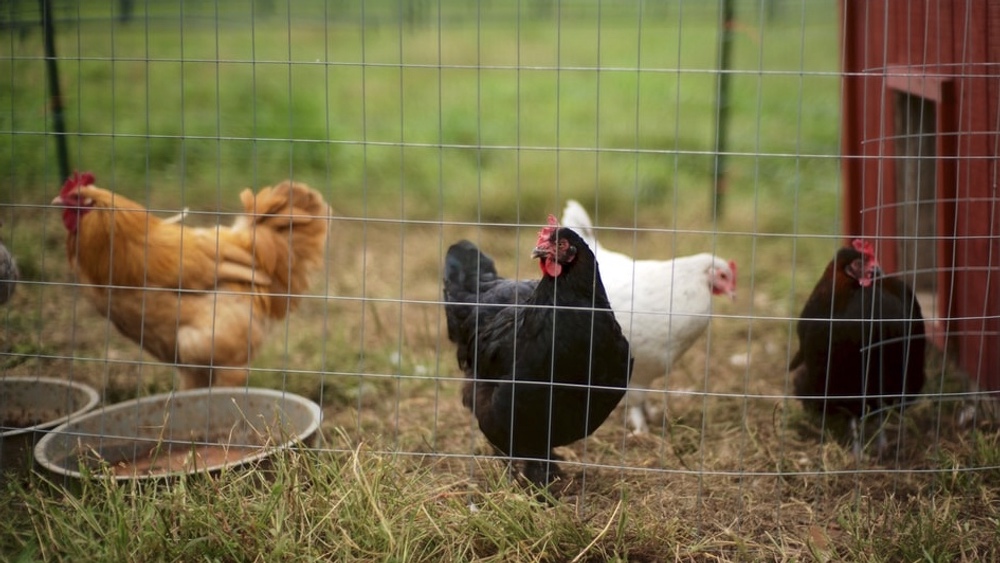Amid the coronavirus outbreak, the number of Americans buying backyard chickens for eggs has increased.
Panic shopping and hoarding during the pandemic have led many stores to sell out of grocery items like eggs. As a result, chicken hatcheries have reported a spike in sales amid the coronavirus outbreak as consumers seek reliable sources of food.
“We are swamped with orders,” Nancy Smith, owner of the Cackle Hatchery in Lebanon, Mo., told NPR. “We can’t answer all the phone calls, and we are booked out several weeks on most breeds.”
The surge in demand for eggs in the U.S. caused egg prices to skyrocket last month as consumers stocked up on grocery staples. In April, the wholesale price of “Midwest large” eggs tripled, hitting an all-time high of more than three dollars for a carton of eggs.

Are Backyard Eggs Vegan?
The suffering of hens on factory farms is well-documented. Even the terms “cage-free” and “free-range” have been shown to be misleading to consumers.
But what about raising backyard hens for eggs? Is it ethical?
Unlike conditions prevalent in the commercial egg industry, backyard hens can be raised in uncrowded, sanitary conditions. The hens also, most likely, have more freedom and access to walk around outside.
Is it vegan to eat eggs from a backyard chicken? It depends on who you ask. Some people adhere to the motto: “if it comes from an animal, it’s not vegan.” Others argue veganism is about excluding forms of exploitation and cruelty to animals, especially for food, so they may choose to eat some backyard eggs, based on how they are raised or where they come from.
Activists state that some hatcheries breed chickens to have “desirable traits,” despite the impact this may have on their health.
Farm animal advocacy organization Free From Harm recommends adopting or rescuing chickens, instead of buying them from hatcheries. Instead of eating them, it recommends feeding the eggs back to the hens to “restore some of the protein and other nutrients they lose” in the process of laying more eggs than they are supposed to.

Vegan Eggs
Prior to the coronavirus outbreak, vegan egg sales were seeing a surge.
According to data released by the Good Food Institute and the Plant-Based Foods Association, the sale of plant-based eggs in the U.S. soared by 192 percent from 2018 to 2019.
Vegan egg products like JUST Egg have reported a sharp increase in sales. Bay Area-based brand JUST revealed last month it had sold the equivalent of 30 million of its mung bean-based vegan eggs. It also announced plans to expand internationally amid the outbreak.
The company says demand for its product has increased due to the “recent awareness of the necessity to build a food system that is safe, stable, and healthier.”


